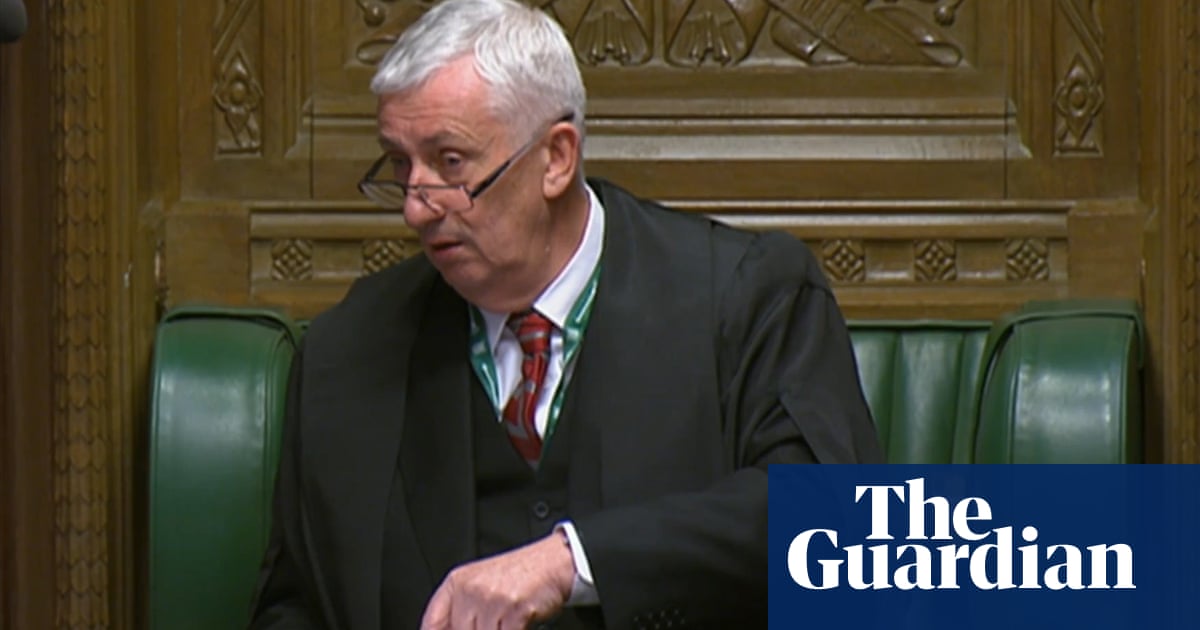
Staff working for MPs face similar levels of psychological distress as frontline NHS workers, a survey has found, amid a “toxic” workload and fears for their safety.
A study of 315 parliamentary workers, the largest of its kind, found many were struggling with the vicarious trauma of helping desperate people in a worsening cost of living crisis.
MPs’ caseworkers said there had been a “worrying upturn” in the number of suicidal people seeking their help in the past year.
Thomas Fairweather, of the parliamentary Wellness Working Group (WWG), which commissioned the report, said: “Parliament has shown that it is trying to do more but there is still quite a contingent of staff on the cusp of burnout, if not into burnout, with nowhere to go.”
The survey found 42% of MPs’ staff met the clinical definition of experiencing psychological distress. This is three times higher than in the general population, and similar to levels seen in frontline NHS workers, according to Dr Ashley Weinberg, a psychologist who studied the findings.
Two-thirds of those surveyed described their work as “emotionally draining” and one in 10 said it was “harrowing”. Staff said it was not unusual to open horrifying mail detailing child abuse, or containing pictures of maimed or dead children.
While the levels of bullying in parliament were found to be lower than in the average workplace, more than one in three said they had experienced unreasonable behaviour in the office, in person or online. Nearly one in 10 said this happened “always” or “very frequently”.
Dominic Raab, the deputy prime minister and justice secretary, is under investigation over allegations of bullying from about two dozen civil servants across three government departments.
Rishi Sunak has refused to say whether he knew about informal complaints before appointing him. Raab has vowed to “thoroughly rebut and refute” the formal complaints. He has said he is confident he “acted professionally” throughout his time in three different cabinet posts.
Nearly two-thirds of those surveyed said they had feared for their own or colleagues’ safety at work. Almost 40% said they hid the nature of their work from friends and family.
One worker said: “The constituency office is unsafe and has been attacked several times by angry members of the public. The MP is never really there so doesn’t care. There is no hot running water or windows and no safe means of escape.”
Another said: “Our MP refused the offer of CCTV at the constituency office, without consulting office-based staff.”
Weinberg, a senior lecturer in psychology at the University of Salford, said there were examples of Westminster supporting office staff but that parliament could go further. “What we’re seeing is people desperately trying to do a good job. But the challenges and the working conditions, and the sheer number of demands and workload, is overwhelming,” he said.
Estelle Warhurst, who works for an MP and helps run the WWG, said there had in recent months been an upturn in the number of “actively suicidal” people contacting MPs’ offices for help.
She said: “There’s a higher level of people in mental distress present to MPs’ offices. Things are more complex, particularly under the current climate where people have multi-factor issues.”
Fairweather, who also works for an MP, said it had been an uphill battle to get more support for caseworkers, but that training had been introduced in recent years around handling suicidal callers and vicarious trauma.
However, he said parliament could do more. “There is something almost perverse about expecting a 22-year-old in their first proper job to triage a case of child abuse versus a case of someone who’s been made homeless – and then expect them to then go home at the end of the day and have no follow-up care, no mandated care of any kind,” he said.
A House of Commons spokeswoman said a range of support services were available to staff. She added “The Members’ Services Team service provides general information about contractual and other employment issues in the form of best practice guides available to all MPs’ staff, as well as pastoral care and signposting to sources of other potential support and advice, and can outline possible options and risks. It is a confidential service.”
In the UK and Ireland, Samaritans can be contacted on 116 123, or email jo@samaritans.org or jo@samaritans.ie. In the US, the National Suicide Prevention Lifeline is 1-800-273-8255. In Australia, the crisis support service Lifeline is 13 11 14. Other international helplines can be found at befrienders.org.












